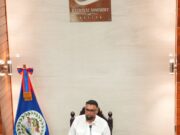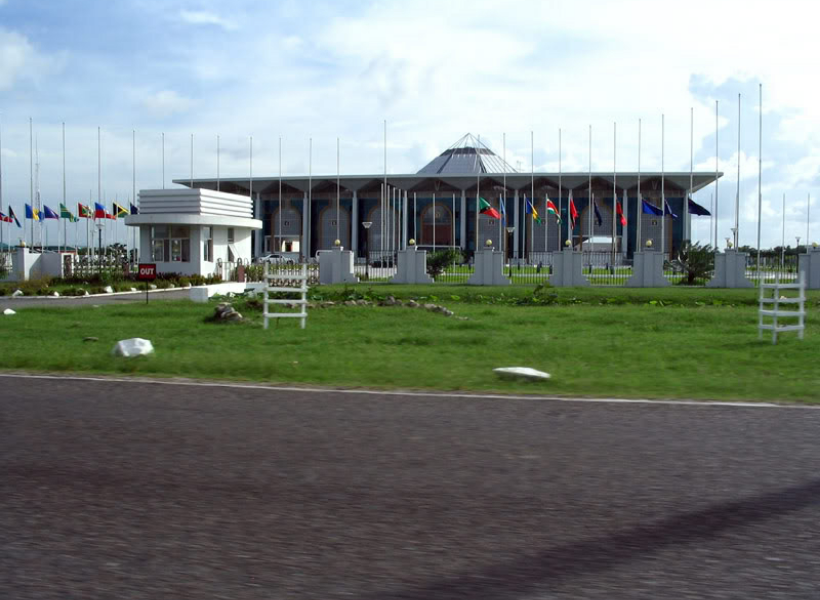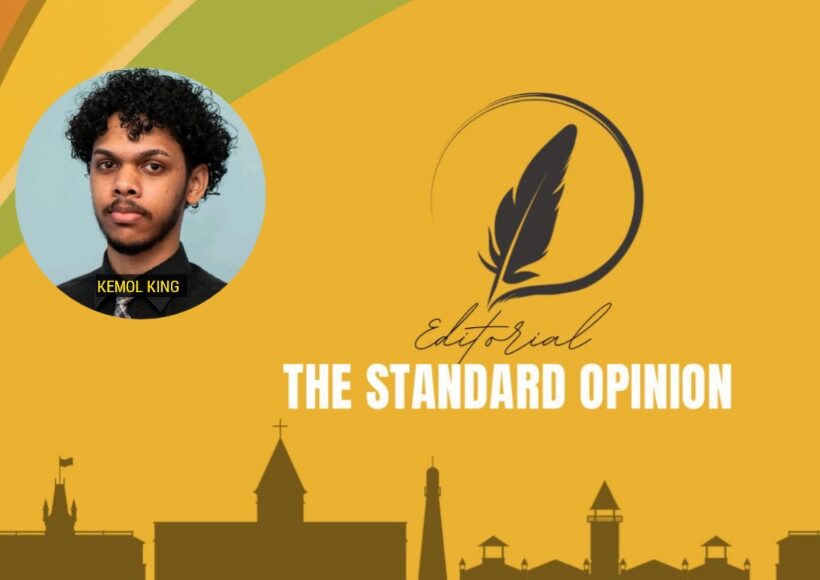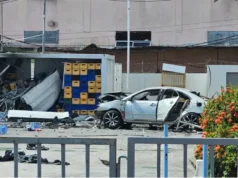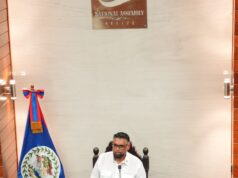By Kemol King
During a Nomination Day interview on July 14, a broad representation of the Guyana media posed questions to Azruddin Mohamed, the presidential candidate for the We Invest in Nationhood (WIN) party. Where is your manifesto? What are your plans and policies for Guyana? He couldn’t name one, but Dr. Mark France, who subsumed A New and United Guyana (ANUG) into WIN, said the manifesto will come soon, and said, among other things, that WIN plans on “diversifying the economy as much as possible.”
This is a critical policy area for any political party that wants to run a country that has come upon massive resource wealth. So a journalist followed up, asking “But the economy is already diversified. To what extent will you take it beyond the current benchmarks?”
This phrasing is important, because it sets the question in the proper context: Not just _What would you do? But rather: What would you do beyond what is already being done?
France, who disagreed with the assertion that the economy is already diversified, followed up on Facebook the next day, stating among other things that the non-oil economy accounts for 37% of Guyana’s gross domestic product. This is in the vicinity of the correct number, based on Ministry of Finance data.
Oil definitely contributes to the majority of Guyana’s GDP. This is not exactly a revelation. In 2020, the first full year of oil production, the non-oil economy made up about 83% of Guyana’s GDP at basic prices, according to Ministry of Finance data. As oil production ramped up, that share fell to about 33% in 2024. What is missing from the discourse is really an acknowledgment from Dr. France that diversification is a scale, not a switch, and that there is a substantial degree of diversification to the extent that is realistic at the current stage in Guyana’s development.
Under the current circumstances, where one of the most groundbreaking oil booms in the world is happening off Guyana’s coast, it is reasonable that the oil sector dominates in GDP terms. But that doesn’t mean the non-oil economy is failing. And it certainly doesn’t mean that there isn’t real diversification underway. What it means is that the oil economy is growing faster than the non-oil economy possibly could. The sheer rate of the oil sector’s growth and the additional growth expected (through to the end of the decade and beyond) constitute a scale that the non-oil economy cannot keep up with. It’s not going to happen in the next five years. It’s not going to happen in 10 years.
Consider this: three offshore oil projects are already producing oil, with a combined capacity of nearly 700,000 barrels per day. Actual production in May 2025 was 667,000 barrels per day (bpd). And when the Yellowtail project comes onstream in August, it will add another 250,000 bpd, taking Guyana’s daily production capacity past 900,000 bpd. This output is contributing, in an outsized manner, to the profits of one of the largest corporations in the world. And ExxonMobil says that by 2030, it expects to triple production offshore Guyana. This takes output close to 2 million barrels of oil equivalent per day, including gas and condensate production. This does not even include the plans Exxon is yet to disclose, regarding its expected development of large natural gas fields discovered in the southeastern section of the Stabroek Block.
Many Guyanese do not even understand the scale of what is happening offshore. So when people point to oil’s share of GDP and act as though it is some sort of economic failure, it shows a fundamental misunderstanding of scale.
What we are seeing here is a single sector that is massive in value, in which oil production capacity jumped by more than 100% in 2022, another 40% in 2023, and is due to triple by 2030. How does the non-oil economy compete with that? I’ll give you a hint: It doesn’t.
Therefore, an appropriate focus would be, not on whether oil is too big, but whether the rest of the economy is being supported to grow too.
Let’s examine the facts. Over the past three years, the non-oil economy has recorded double-digit growth annually. Considering the compound impact of economic developments in the period 2021–2024, the non-oil economy has grown nearly 50%. It happened because of the impact of the oil sector on the broader economy and the policies of the government.
One example of such policy in action is the Local Content Act, which requires oil companies to procure goods and services from Guyanese suppliers. Before this, much of that business went to foreign firms. Now, Guyanese companies are scaling up, building capacity, and meeting international standards. And when these same companies take their experience and apply it elsewhere in the economy, such as in construction and logistics, that is diversification in action.
The construction sector is a major growth area. The government is using oil revenues to build infrastructure across the country, including bridges, roads, housing, schools and hospitals. This kind of investment creates jobs and creates the conditions for greater productivity in the long term. The same is true for services, which are thriving on the backs of investment by the public and private sectors.
In agriculture, Guyana has positioned itself as the regional leader in CARICOM’s food security drive. This effort has the potential to make Guyana the Caribbean’s breadbasket once again due to investment in production and access.
And even as so much is being done, the government faces scrutiny and criticism over the pace of spending and the correlation this may have with the quality of its projects, delays, and higher costs for inputs like construction material. At some point, the need for the government to be careful and strategic in its economic planning (and the execution of those plans) trumps the need to scale up the size of the non-oil economy to be on par with oil.
So again, when France dismisses the economy as not diverse, we have to ask: What is your benchmark? What would you do differently? How do you improve on the current policies, infrastructure, investment, and legislation, beyond the work and vision of the government you are trying to replace?
Guyana’s challenge is to grow the non-oil economy alongside oil, and to ensure that public spending, like cash transfers, salaries, and subsidies, are hiked in line with broad-based economic growth, instead of being linked to and dependent on oil money. This reduces dependence, vulnerability to volatile prices, and the pressures of the energy transition.
Further, there appears to be a broader trend of hostility toward people, especially journalists, who direct scrutiny at Azruddin Mohamed. Clearly, many have donned rose-coloured glasses to look upon the billionaire businessman due to a carefully curated social media image. And this parasocial relationship people have with him is threatened when he is subjected to scrutiny. But the press has every right to ask questions. Especially during an election season. Especially about economic policy. To dismiss a fair question or cast aspersions on journalists at the first hint of frustration is bad politics. Answer critical questions, even if you believe the journalist is harsh. If you want to be in government, that is what you have to deal with every single day.
So, what’ll it be, Dr. France?

